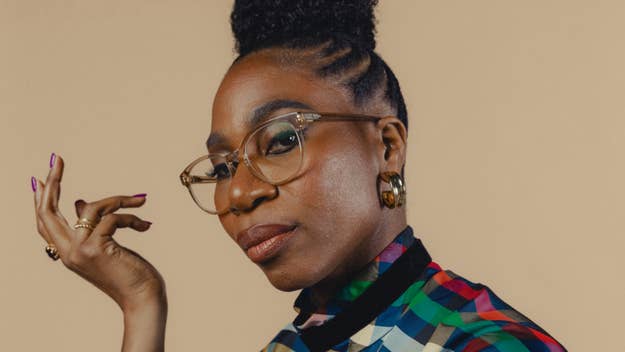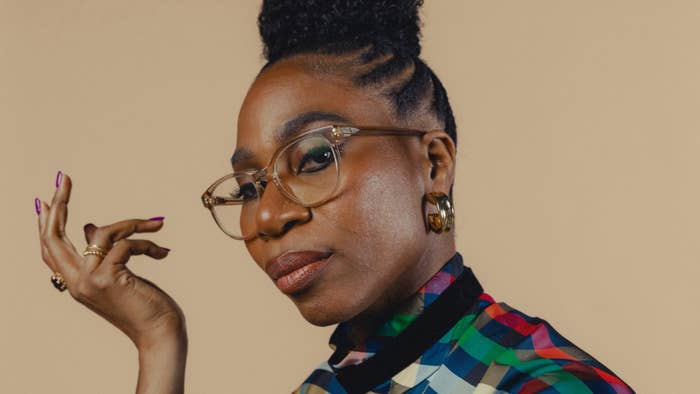
When Janine Nabers joined the Atlanta writer’s room in 2021, the FX series was already in its third season. Fans were accustomed to a certain level of storytelling and familiar with the central characters—Earn, Paper Boi, Darius, and Vanessa—and Nabers, who was a fan, came prepared to impress Donald Glover with pitches and ideas based on the show’s format and the characters she loved. But Glover, who created the show, had other plans.
After spending two seasons in Atlanta, the cast was headed to Europe, and Glover informed Nabers that half of the episodes were going to be step-outs that focused on white people. This was in stark contrast with what Nabers expected, which was to write material for nuanced Black characters.
“He wanted to subvert [Atlanta] even more and do a season of television without the actors in it, which was wild,” says Nabers over the phone. “It was an incredible idea. It was really bold. That's definitely something a show has not done before.”
Glover originally assigned her an episode that mostly focused on Van and didn’t include any of the other cast members. Nabers was excited by the ambitious concept, but she was eager to write for everyone. “I remember going to him and being like, ‘Look, I love this episode. I will write it if you want me to. But I came on this show because I fell in love with these characters. I fell in love with these men, and I fell in love with all four of them. I really want to write an episode they're all in. I want to prove to you that I can write your voice.”
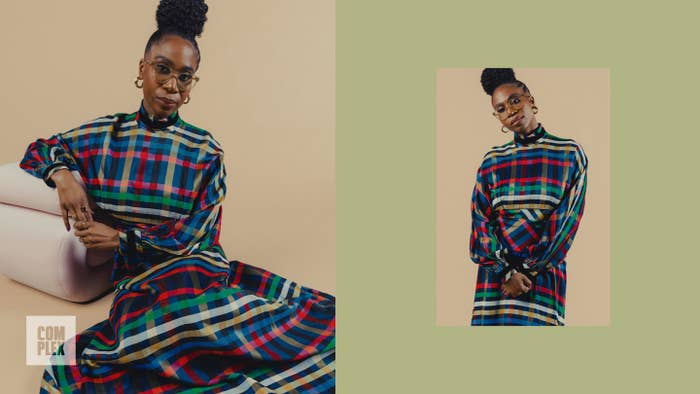
Fortune favors the bold, so after she spoke up, Glover gave her Season 3’s Episode 2 “Sinterklaas is Coming to Town,” which was about Van joining the whole crew in Amsterdam. It was an episode that explored the Sinterklaas holiday in Amsterdam, which includes blackface, Earn getting Paper Boi out of jail, and Darius and Van witnessing the assisted death of a terminally ill man. Nabers was able to fully reflect each of the characters while in very specific and intense situations. “I think that kind of helped solidify our relationship, just me being really honest with him and us having an honest kind of relationship,” she says. “I was able to prove to him that, ‘Oh, this woman can really write the characters that have existed in my head for so long.’”
Because of her work on Atlanta, Glover trusted Nabers to help him bring Swarm to life. The hit series, which was released on Prime Video in March, tells the story of Dre, played by Dominique Fishback, and her undying obsession with a pop icon named Ni’Jah, a Beyoncé-like figure she idolizes excessively. The show has threads of Atlanta and its unconventional approach, but it includes more elements of horror, a genre Nabers is drawn to. It was a bold step to make after the success of Atlanta, but it worked, owning internet conversation when it was released, earning Nabers an Emmy nomination for Outstanding Writing, and making viewers feel a way (good and bad) when watching Fishback play a serial killer, a role that’s not typically available for Black women.
“I was so hungry to write Black women, especially with Donald because Atlanta was so specific to Black men and their identity,” says Nabers, who considers Swarm to be the sister show to Atlanta. “Their relationship with women was always secondary, which I loved. I respected it because it wasn't really about the romance, it was always about those two men, the cousins, and their friends.”
“When you have so many people tell you, ‘You can't do this, you can't do that, this isn't for you,’ it made me want to write something.”
Nabers has always been seeking out ways to reflect the full scope of Black women. She initially intended to pursue acting and directing and obtained a bachelor's degree in theater from New York’s Ithaca College. But she pivoted to writing after growing frustrated with the lack of stage roles for young Black women. “Obviously there were incredible plays for Black people, too. But it was so many of the same roles because there were so few Black plays that someone my age could play,” Nabers says. “I was 19 years old playing the Ma from A Raisin in the Sun. I'm like, ‘I'm not an old lady. This is weird. Why can't I play someone that's young and my age?’”
Nabers felt that the best way to create a space for people like her in theater was to start writing her own plays. She went on to pursue an MFA in playwriting from The New School and was then accepted into the prestigious Lila Acheson Wallace American Playwrights Program at Juilliard. “When you have so many people tell you, ‘You can't do this, you can't do that, this isn't for you,’ it made me want to write something,” Nabers added. “That was definitely the start of my relationship with writing. And not even writing for myself, just writing dialogue that I wanted to hear.”
Nabers spent 10 years learning her craft in New York and wrote plays like Serial Black Face, A Swell in the Ground, and Welcome to Jesus between 2015 and 2017. “I feel like that was the prime of a lot of theater writing. I was there when so many great people were coming to the end of their reign. I was there when August Wilson passed away and Wendy Wasserstein passed away and Edward Albee,” she says. “But I was able to learn from all of these people. I was able to study with so many people who had these incredible playwriting careers and were still teaching and were still connecting with students.”
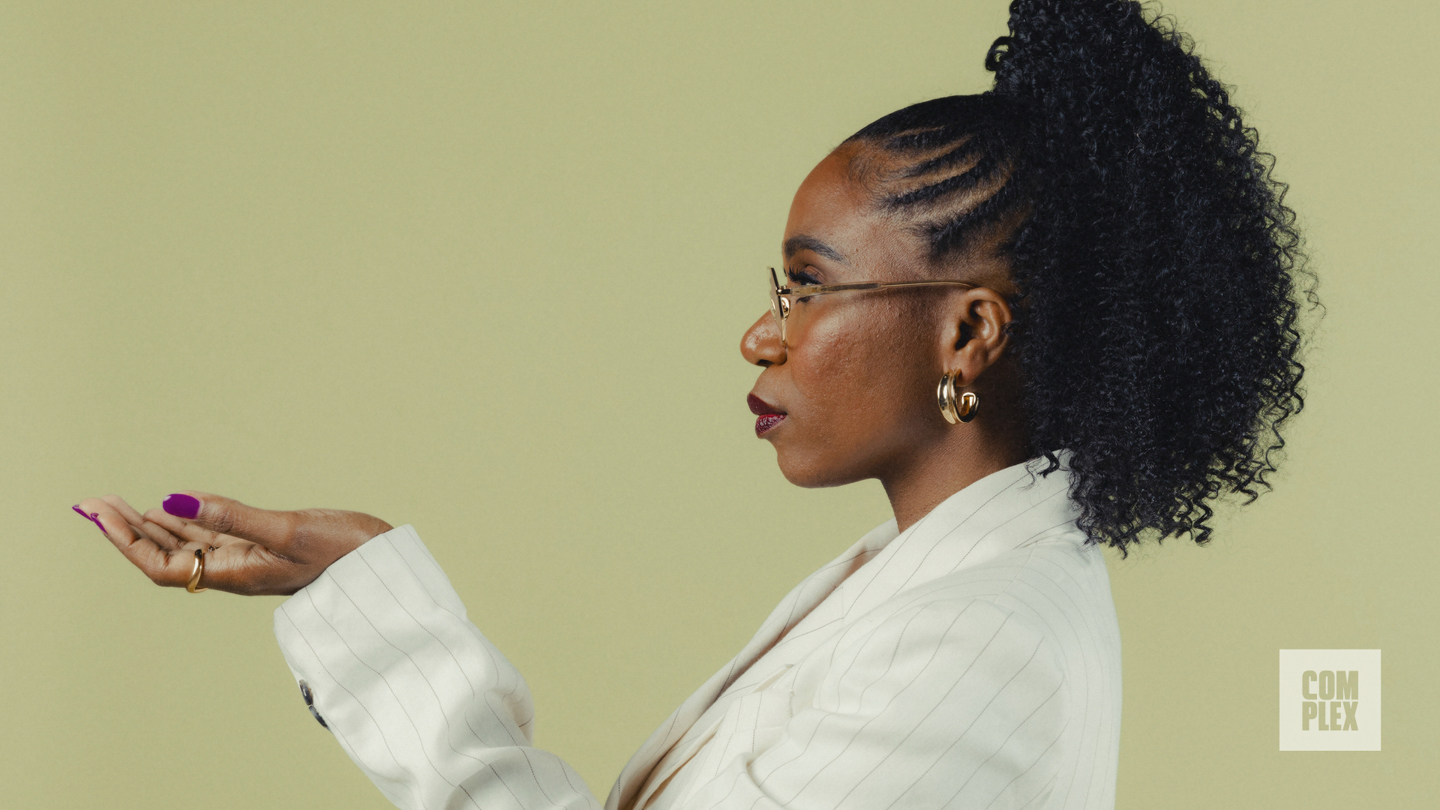
At the time, playwrights writing for TV was frowned upon. When Nabers was in graduate school, the New York Times published an article that said playwrights were being shunned if they wrote for TV, and that was especially true for people like her who were in Juilliard's competitive program, which only took four writers a year. “They basically were like, ‘If you leave for TV, we will take your fellowship away.’ It was very much that you had to dedicate yourself to the art of playwriting.” The program’s exclusivity also came with a spotlight that made the writers well-known to outsiders, including television executives. “Everyone starts to know who you are. Everyone is like, ‘Oh, can I read this play?’ And then suddenly there are TV people calling you.”
Eventually, television producer Marti Noxon called Nabers, who was in the middle of washing dishes in a Tribeca loft during a nannying gig. Noxon saw Annie Bosh is Missing, a play Nabers wrote that was showing at Chicago’s Steppenwolf Theatre, and she wanted to offer Nabers a writing job on her Bravo series Girlfriends' Guide to Divorce, a show about a well-off white woman going through a divorce in Los Angeles. Nabers wasn’t familiar with that type of character, but she quit her job anyway and packed her bags to move to L.A.
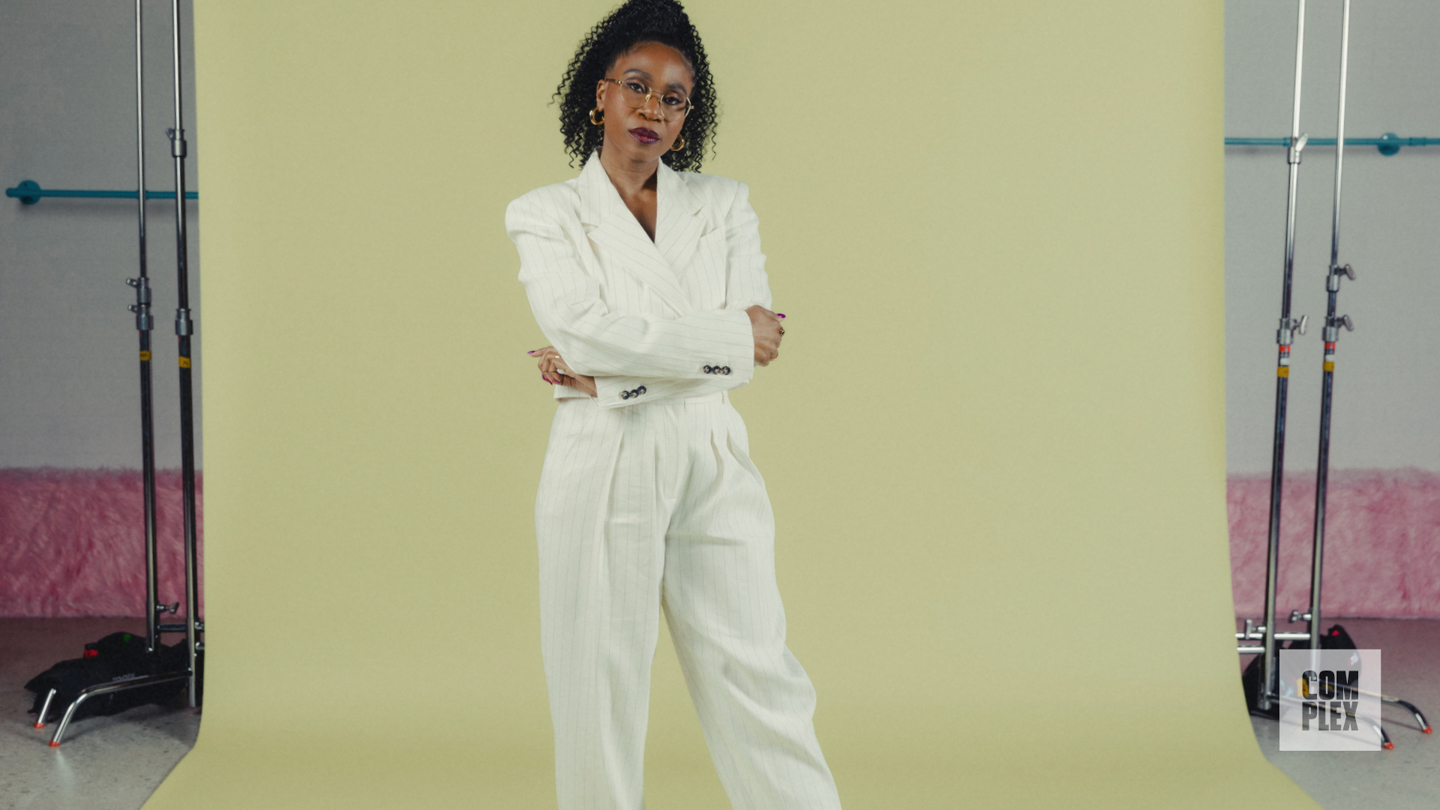
“When you're so used to writing your own characters, you go into something wanting to influence someone else's voice. And that's where a playwright can fail in a writers room,” she says. “With Marti, I was like, ‘OK, I'm going to channel my inner white lady and write this woman's voice until I get it right.’ And that's what happened. That's why [Marti] kept staffing me because she was like, ‘You really get the tone of the show.’”
Nabers went on to contribute to Lifetime's UnREAL and AMC's Dietland, and then produced episodes for HBO's Watchmen before being staffed as a writer and executive producer on the third season of Atlanta. Her ability to fully embody different characters and understand someone else’s vision is why she thrived while working on that show. After production for Atlanta ended, Glover and Nabers jumped right into Swarm. Together they crafted a story that focused on two Black women—sisters Dre and Marissa—from Houston (Nabers’ hometown). It was a departure from Atlanta, which was inspired by Glover’s upbringing in the city and mainly focused on the Black male experience.
“I was interested in taking that idea of Atlanta, but focusing it in Houston with a sister relationship and the psychology of someone who becomes more and more unhinged, and making that thoughtful, but also entertaining and funny and sad and scary."
Nabers was now in a position where she could create characters for other actors like Fishback and Chloë Bailey to take on. The two characters they portrayed were flawed and struggling with mental health problems. Dre became the anti-hero who women, especially Black women, rarely get to be.
“I was just really interested in taking that idea of Atlanta, but really focusing it in Houston with a sister relationship and the psychology of someone who becomes more and more unhinged, and making that thoughtful, but also entertaining and funny and sad and scary. All of those feelings that you would feel if you are someone who is obsessed with something.”
Aside from Dre being a diehard fan of the made-up superstar character Ni'Jah, she also had an unhealthy attachment with her foster sister. Dre was unable to grow past her obsession with the singer, and when she loses Marissa it sends her down a spiral that turns her into a serial killer as she tries to avenge anyone who ever did her sister harm. While her reaction to Marissa's death is extreme, her level of grief is on par with how people feel when they lose the only person they had to lean on. “That for me was always the key: Making it as real as possible. Trying to solidify their relationship in that pilot as something real and something very specific to them, but something that I think other women, Black women in particular, could recognize.”
Naber’s playwriting experience comes in clutch when fleshing out and developing characters like Dre. The best TV shows allow for characters’ growth and for a close examination of their inner psyche. That was necessary for the audience to care about the pop star-obsessed, murderous Dre, despite her faults.
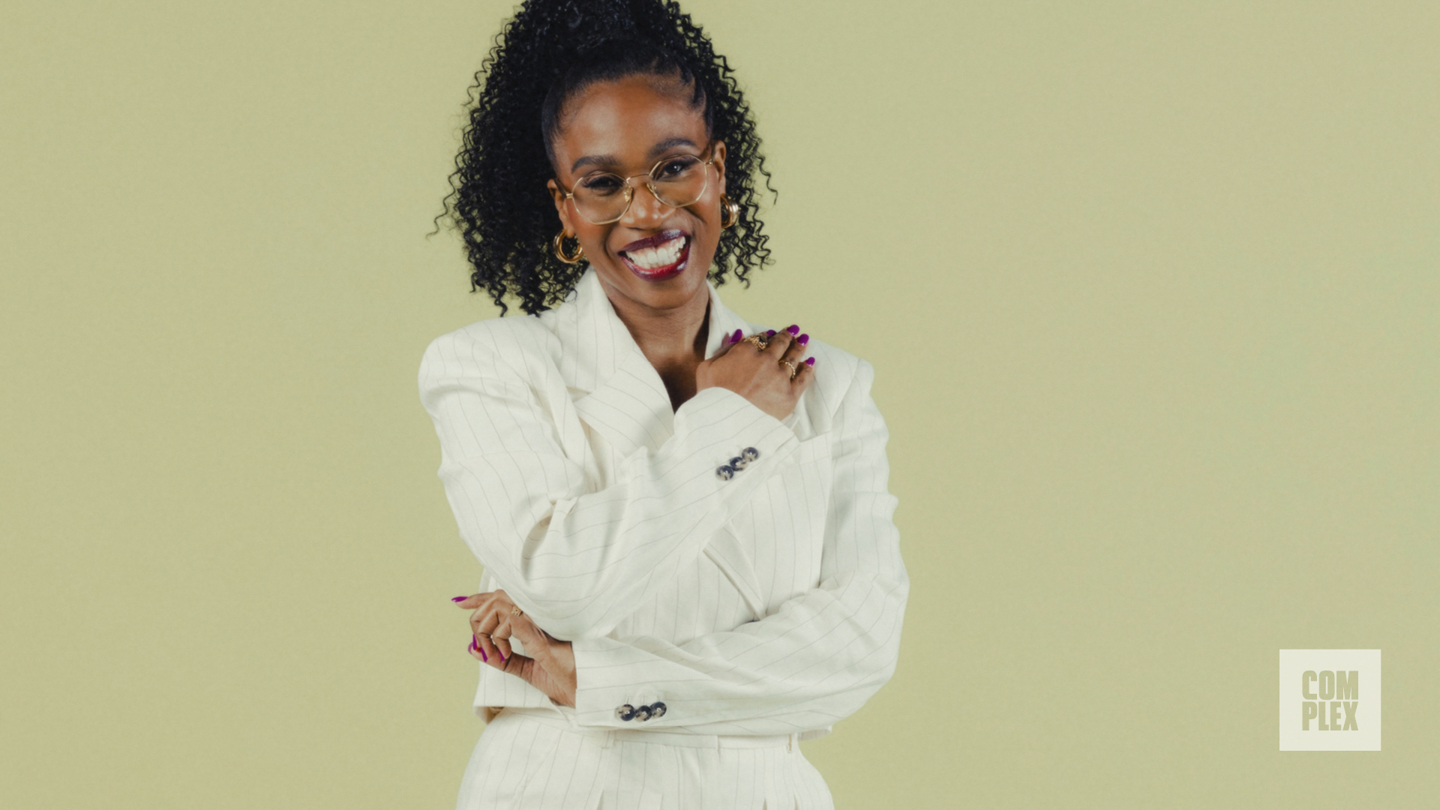
Glover on the other hand leans more into the shock factor scenarios that get people talking and flawlessly references whatever pop cultural moment we are currently in. He and his team also often eerily predict where we will be far into the future.
“He is more focused on TV and moments than the characters. That became a really interesting marriage between the two of us. I'm very much about the character, about the why and the what and the through line of things,” Nabers says. “He is less into that and more into the feeling, the moments and the funny things that you see on the internet that you can turn into something that you see on TV.”
Yet their opposing thought processes work perfectly for TV. The union of their strengths is what has made both shows as unique and engaging as they are. Atlanta was the perfect balance between giving fans strong characters to root for while only sharing silhouettes of their lives. There was a level of vagueness regarding their backgrounds, their inspirations, and who they were when we were not watching. “It was very interesting to work with someone who doesn’t care about a through line of the character. That's the thing that breaks open form in a lot of ways because TV is so formulaic,” she adds. “You look at the ‘Why now?’ of a character, but Donald doesn't care about those questions. That's incredible.”
Atlanta’s finale followed that format, not letting viewers know where the characters or their stories were headed. It was vague, random, weird as hell, and exactly what Nabers says the show’s finale should’ve been. “The finale for Atlanta, I think, was perfect,” she says. “A lot of people didn't really know where the show was going and where these characters were going. And I love that.”
While she also wanted an explanation for what would happen to the core four after the finale, Glover didn’t want to give people any clarification, leaving them with an open-ended finale the same way other TV greats like The Sopranos and Breaking Bad did.
His approach taught her to trust the process and consider ambiguity: “That's what makes people lean in and form their own opinions. You're not explaining everything to them.”
Swarm had a similar finale. Fans can only speculate what will come next for Dre. The series fed various cravings by giving the audience what they were yearning for. Whether they wanted the comedic, viral moments or a deep-dive into the main characters’ mental state, it was all there. “We both had to set aside some of our own things that we learned and work together to tell this story. It is a very, very, perfect blend of the two of us,” Nabers says about Glover. “But I don't think I would ever tell a story like this again. And I don't think [Donald] would ever tell a story like this again. It's a very specific marriage of ideas that we put into this series.”
Nabers says the goal is for a show to evoke some sort of reaction from fans, and Swarm did. Viewers openly dissected Dre as a character, argued over Bailey’s sex scene, discussed the Beyoncé/Beyhive comparisons, and raved about Fishback’s performance.
“[Glover] is more focused on TV and moments than the characters. That became a really interesting marriage between the two of us. I'm very much about the character, about the why and the what and the through line of things.”
While certain moments lived on longer than others, Prime Video releasing all the episodes at once didn’t allow for fans to sit with the characters long enough. The magic of weekly shows is that it gives room in between episodes for viewers to breathe, think, to grow closer to the characters, and perhaps makes them invest in and care about the story more. When a show drops all at once, TV fans are forced to binge-watch in order to avoid spoilers that often plague social media.
“I prefer weeklies. I will binge-watch a show, but I like event TV. I've always preferred it,” Nabers says, adding that she enjoyed Peacock’s Poker Face but wasn’t sure when she could return to it. “There's something really magical about it because it lends itself more to the water cooler moment. Not everyone can sit down and watch three-and-a-half hours of TV all at once.”
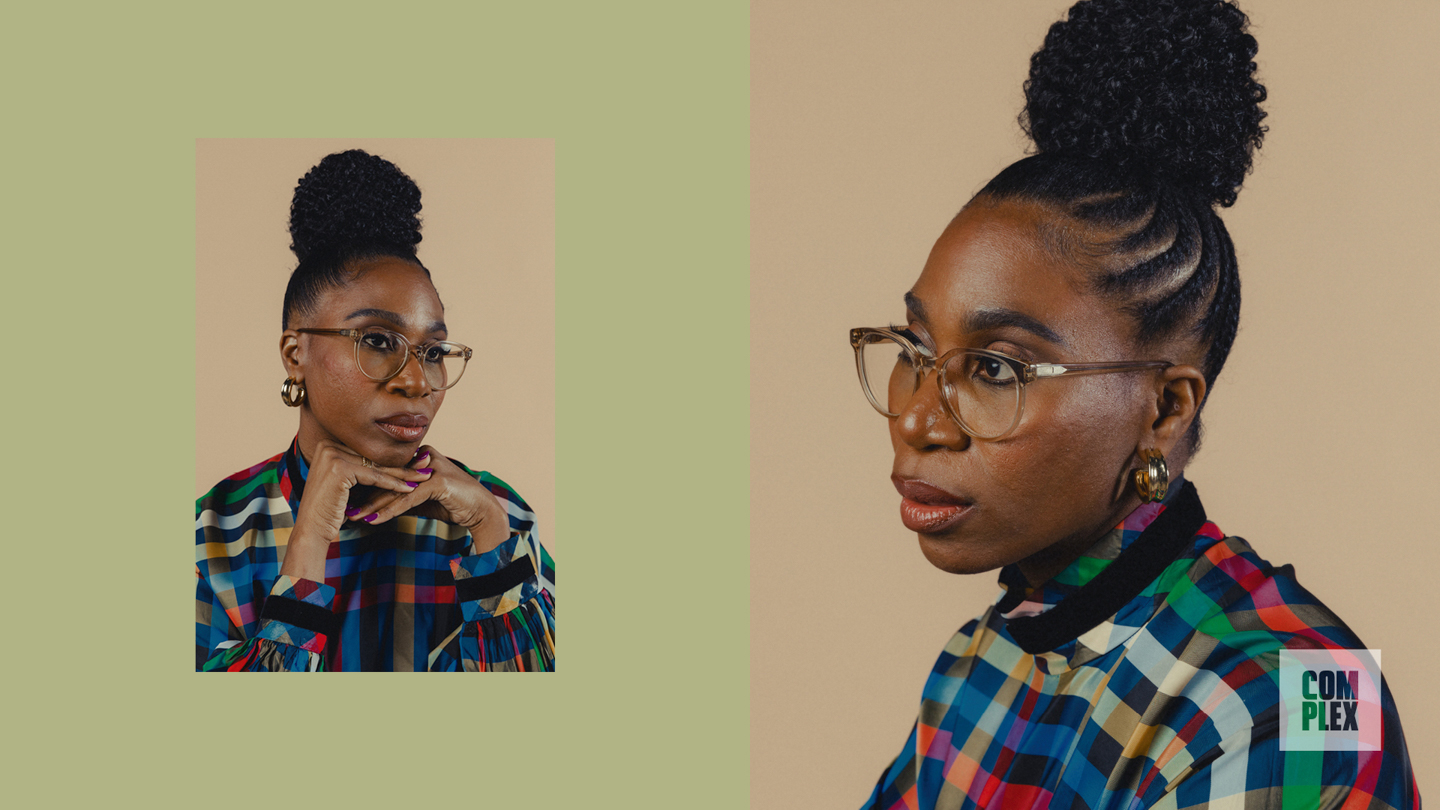
Swarm’s seven episodes were meant to feel like a short film, which made watching it all at once easy. With each episode, viewers find Dre at various points and places in her journey that spans two-and-a-half years throughout the course of the series. Every episode has its own arc, feel, and taste, and is specifically tied to an event that has existed within the news and pop culture, or both of those worlds colliding. “They are all supposed to have a different feel to it rather than a very straightforward narrative. You're with this character…you see evolve over the course of a limited series,” Nabers says. “It's her evolution as a woman, as a murderer. It's her evolution through music and through her understanding of her relationship with this pop star, her sister, and her family. All of those things evolve and shift in some way over the course of these seven episodes.”
Now with Swarm under her belt, Nabers has thriller Syd in the works as part of the overall deal she signed with Amazon Studios. Nabers will be co-creating Syd—which follows a Black tech CEO attempting to get control of his life after being hacked—along with Etan Marciano, whom she worked with on AMC’s Dietland, and they will also serve as executive producers along with Annapurna Pictures.
Nabers has successfully navigated both theater and TV by telling compelling, character-driven stories. She is a Juilliard grad who can easily shift between speaking about her love of Shakespeare and Chekhov to talking about getting high and eating Hot Cheetos in the Atlanta writers room. By carving a clear path for herself, she now has the key to tell the stories she found were missing in her space, and to give a voice to and help other people like her find a place for themselves.

